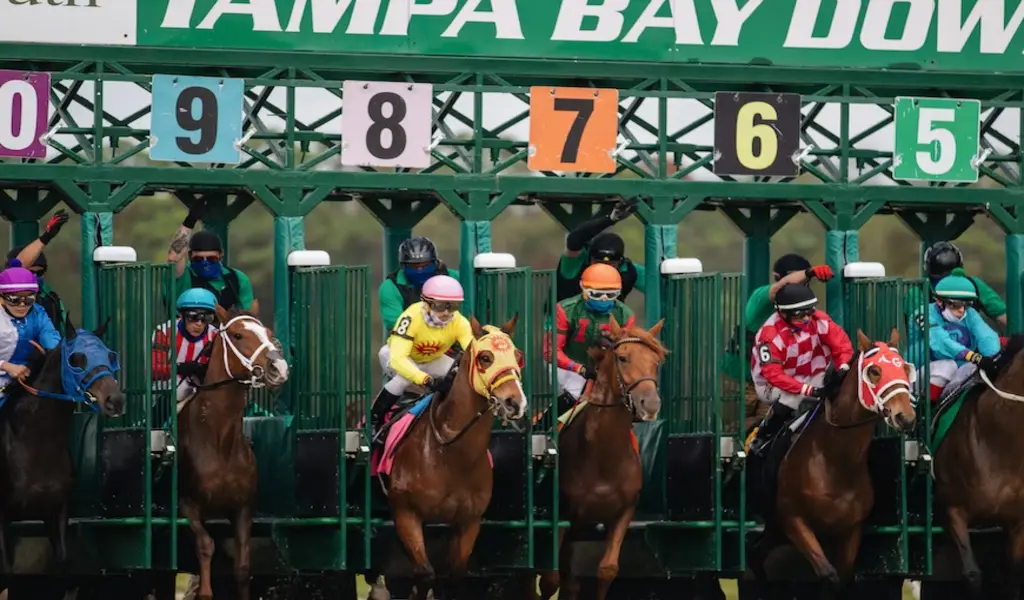Sports
8 Common Horse Racing Terms You Might be Unfamiliar With

If you’re new to horse racing, there are probably many expressions you might not be familiar with.
There are a few dozen of them, so you might feel overwhelmed. We understand how you feel.
Even some horse racing veterans are unfamiliar with these expressions.
We will discuss some of these expressions and what they genuinely mean.
Across the Board
“Across the board” means all categories. It originated back in 1903 as a term in horse racing.
According to the Oxford Dictionary, wagering “across the board” means that you’re betting that your chosen horse will win either first, second, or third. It’s commonly used in simple betting, where you choose a horse to win, show, and place.
Charley Horse
Have you ever had a muscle cramp on your leg before? If so, then you might be more familiar with this term.
However, what does a cramp have to do with the name Charley? According to the OED, the Charley horse began as a baseball slang in the late 1800s.
Experts theorized that Charley must have come from a pitcher named Charlie “Old Hoss” Radbourn, who experienced chronic leg cramps. Other sources stated, however, that it came from someone’s old and lame racehorse.
Allowance Race
While many owners aim to participate in significant horse racing events like the Kentucky Derby, horses must qualify for allowance races before participating in significant events.
These races are restricted to specific horses, and the race revolves around the prize money or the horse’s age.
Horses in these races will carry specific weights to ensure that the race is on a level playing field.
You could also do carryover in allowance races. If you’re unfamiliar with that as well, you can read articles about it, like the Carryovers TVG guide.
Also Eligible
This is commonly used in big races, especially with the Triple Crown. The term means that the horse is eligible to race, but it needs an already involved racehorse to pull out from the event.
This is especially true for the Kentucky Derby, as a lot of racehorses are waiting for one of the horses in the top 20 to pull out so they can have a chance to participate.
Home Stretch
This one you might have heard already. The home stretch, also known to some people as the home straight, is the last few meters the horse has left for the race.
In the OED, it means that you’re almost done with whatever you’re trying to accomplish, but it’s more commonly used in races, including horse racing. The meaning came about in 1860, while it was used earlier in horse racing in 1841.
Artificial Breeding
This one you might be entirely unfamiliar with. Although the term itself is not taboo since it’s a hot topic among horse racing enthusiasts, artificial breeding is a massive violation in horse racing.
Artificial breeding includes artificial insemination and embryo transplant, both forbidden by the Jockey Club.
According to the rules, for a horse to be eligible to race, thoroughbreds must be the result of natural breeding, as both the pedigree and the ability to prove a horse’s heritage is very important.
Running Mate
You might have heard this in a political context, but did you know that the term originated from horse racing?
In politics, a running mate refers to a candidate or a nominee for the lesser of the two closely associated offices in the government.
For example, the vice presidential candidate of a running president of the United States is called a running mate.
In horse racing, a running mate is a horse that is used to set the pace in a race for another contender.
According to the OED, a running mate is a horse that runs with a trotting or pacing horse in a double harness to relieve some of the load the other horse is carrying.
Pacemaker/Rabbit
A pacemaker, or a Rabbit as some call it, is a horse sent to an early lead to set a fast pace.
This is a tactic often used to tire out the other horses on the field while, at the same time, benefitting a stablemate’s chances of victory.
You might be thinking that it’s no different from a frontrunner. While the tactic used is essentially the same, the difference between the two is that the pacemaker is looking to improve the chances of his stablemate’s winning chances while the frontrunner is looking to win the race itself.
Final Words
While some of these terms are commonly used by horse racing enthusiasts, it doesn’t mean everyone knows what they mean. There’s a chance that some people who know one or two of these terms don’t know their meanings. One of a bettor’s duties is to know these terms about horse racing because you never know if these terms might even help you win a bet or two.
Related CTN News:
Super Bowl LVII Draws 113 Million Viewers, 3rd Most-Watched Game In History
Valorant Esports Pro Player ‘Luie’ Dies In Turkey-Syria Earthquake
Singapore To Host FINA 2025 World Aquatics Championships






























